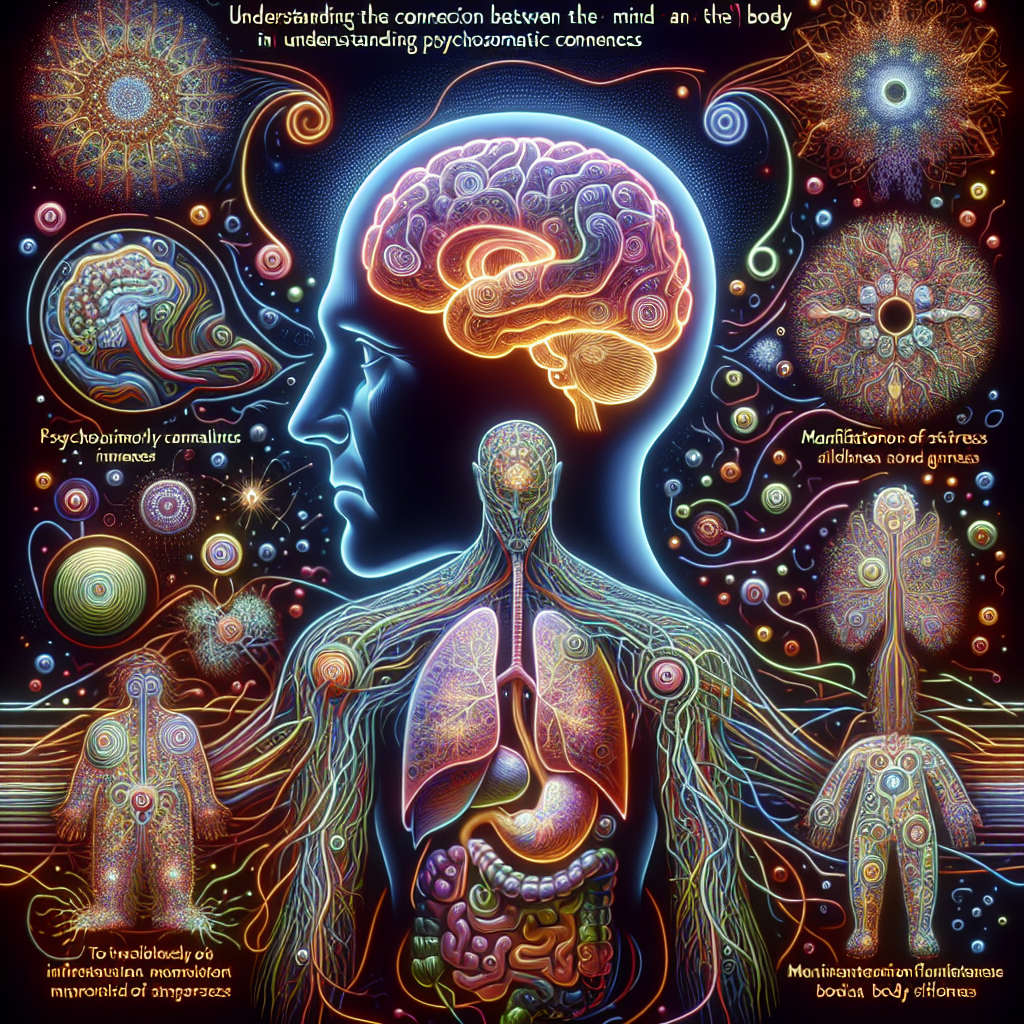
Introduction
Imagine waking up with a crippling headache or a sudden digestive struggle without any underlying physical illness. Now, what if I told you that these symptoms might not stem from your body but from your mind? This phenomenon, termed psychosomatic illness, highlights the intricate and profound connection between our mental state and physical health. The Mind-Body Connection: Understanding Psychosomatic Illness is critical in today’s fast-paced world, where stress and anxiety are prevalent. By exploring this connection, we can unlock powerful insights that can lead to better health and well-being.
In this ultimate guide, we will delve into the science, case studies, and practical strategies surrounding the mind-body connection and how it relates to psychosomatic illnesses. Whether you’re a health professional or someone curious about your relationship with your body and mind, you will find valuable and applicable knowledge. Let’s embark on this transformative journey together!
What Is Psychosomatic Illness?
Psychosomatic illness refers to physical symptoms that arise from psychological factors. This doesn’t mean the symptoms are "not real"—they are very much real to those experiencing them. Instead, the origin of these symptoms can often be traced back to emotional or mental stressors, such as anxiety, prolonged stress, or unresolved trauma.
The Science Behind Psychosomatic Illness
Research in psychosomatic medicine reveals that psychological factors can trigger physical diseases. The relationship between the mind and body is mediated through various mechanisms, including hormonal changes, neural pathways, and immune responses.
A 2018 meta-analysis published in Psychosomatic Medicine reviewed multiple studies and established that individuals with chronic stressors exhibited higher incidences of heart problems, gastrointestinal disorders, and autoimmune diseases. These findings reinforce the importance of The Mind-Body Connection: Understanding Psychosomatic Illness for both patients and healthcare providers.
Key Factors in Psychosomatic Illness
Understanding the mind-body connection requires a closer examination of key factors that contribute to psychosomatic illness:
1. Stress and Anxiety
Stress is perhaps the most significant contributor to psychosomatic disorders. When stressed, the body releases cortisol and adrenaline, which can lead to various physical symptoms. For instance, someone under chronic stress may experience tension headaches, fatigue, and gastrointestinal issues.
2. Emotional Trauma
Unresolved emotional trauma can manifest physically. For example, a person who has experienced significant loss may develop chronic pain conditions as a somatic response to grief.
3. Lifestyle Factors
Poor diet, lack of exercise, and inadequate sleep can exacerbate psychosomatic symptoms. The body’s needs should be met for optimal functioning, and neglecting them can lead to a plethora of psychosomatic issues.
4. Social Support
A strong social support network can buffer against the effects of stress and improve psychosomatic symptoms. Conversely, loneliness and isolation can worsen stress responses, further exacerbating both mental and physical health issues.
A Closer Look: Case Studies
Case Study 1: Sarah’s Chronic Pain
Sarah, a 35-year-old marketing professional, experienced unexplained chronic pain for over two years. Despite numerous tests revealing no physiological explanations, she worked with a psychologist who helped her connect her pain with stress at work and past traumas. Through therapy and stress-reduction techniques, Sarah experienced a significant decrease in her pain levels.
Analysis: Sarah’s case exemplifies how psychological issues can manifest physically, reinforcing the significance of The Mind-Body Connection: Understanding Psychosomatic Illness.
Case Study 2: John’s IBS
John, a 40-year-old accountant, suffered from irritable bowel syndrome (IBS) for years. His condition flared up significantly during periods of high workplace stress. A comprehensive treatment plan that included mindfulness and stress management techniques significantly decreased his IBS symptoms.
Analysis: John’s experience illustrates the direct link between mental stress and gastrointestinal health, further emphasizing the importance of understanding psychosomatic illness.
Table: Common Psychosomatic Symptoms
| Psychosomatic Symptoms | Associated Psychological Factors |
|---|---|
| Chronic Pain | Stress, Anxiety, Trauma |
| Gastrointestinal Issues (IBS, ulcers) | Stress, Life Changes |
| Fatigue and Insomnia | Depression, Anxiety |
| Skin Conditions (eczema, psoriasis) | Stress, Emotional Trauma |
| Migraines | Stress, Anxiety |
Practical Strategies for Healing
Understanding the psychosomatic relationship opens the path to holistic healing. Here are actionable strategies to improve both mental and physical health:
1. Mindfulness Meditation
Mindfulness meditation is scientifically supported to alleviate stress and enhance emotional well-being. Practices like mindful breathing can help individuals connect with their bodies and reduce psychosomatic symptoms.
2. Cognitive Behavioral Therapy (CBT)
CBT is a proven technique for addressing the root causes of psychosomatic disorders. It helps individuals reframe negative thought patterns contributing to their symptoms.
3. Physical Activity
Regular exercise not only strengthens the body but also helps relieve stress and anxiety. Simple activities like walking, yoga, or dancing can serve as effective stress relievers.
4. Nutrition
Eating a balanced diet rich in whole foods can enhance overall well-being. Including Omega-3 fatty acids and antioxidants can particularly combat inflammation associated with psychosomatic symptoms.
5. Strengthening Social Connections
Cultivating supportive relationships can act as a buffer to stress. Join community groups, reconnect with friends, or engage in social hobbies to build a supportive network.
Conclusion
The Mind-Body Connection: Understanding Psychosomatic Illness is more relevant today than ever. As we become increasingly aware of the interplay between our mental and physical health, we can take proactive steps towards holistic healing. By educating ourselves and adopting practical lifestyle changes, we can promote better health outcomes for ourselves and others.
Let’s embrace this connection, recognizing that our minds shape our bodies and our bodies influence our minds. Healing is not just about treating symptoms but understanding the story behind them. It’s a journey of self-discovery, empowerment, and profound transformation.
FAQs
1. What is a psychosomatic illness?
Answer: Psychosomatic illness refers to physical symptoms that arise due to psychological factors such as stress or trauma. The symptoms are genuine and could affect various bodily systems.
2. How can I tell if my symptoms are psychosomatic?
Answer: Consider if your symptoms flare up during times of emotional distress, whether medical tests show no physical issues, and if stress management practices help alleviate your symptoms.
3. Can psychosomatic symptoms be cured?
Answer: Yes, with appropriate interventions such as therapy, lifestyle modifications, and stress management techniques, many people report significant improvements in their symptoms.
4. How long does it take to see results from mindfulness or CBT?
Answer: Results can vary. Some may notice improvements within a few sessions of therapy or mindfulness practice, while others might take several weeks for significant changes.
5. Is it advisable to seek medical help for psychosomatic symptoms?
Answer: Absolutely. It’s essential to consult with healthcare professionals who can guide you in understanding your symptoms and developing a comprehensive treatment plan.
The journey towards understanding The Mind-Body Connection: Understanding Psychosomatic Illness is just beginning. Engage with your mental and physical health, seek knowledge, and embrace the path to healing.
















